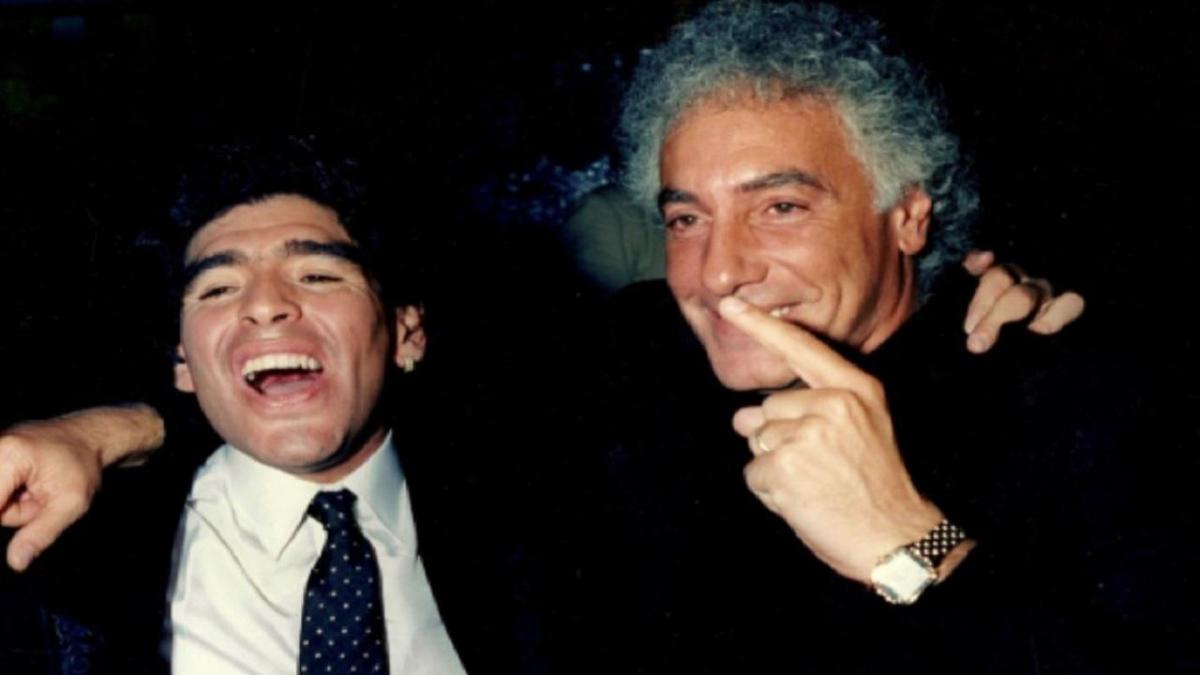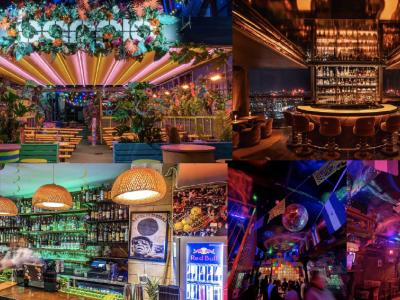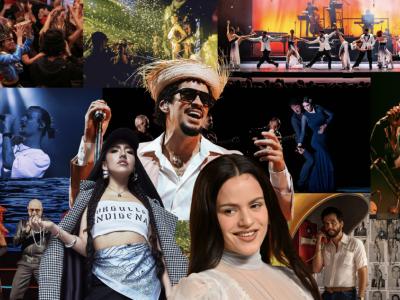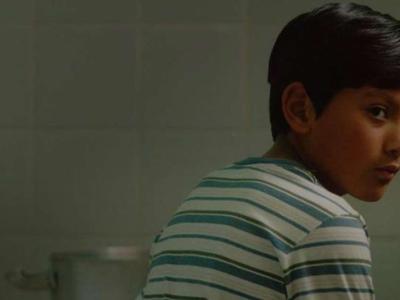Jose Luis Seijas: Was the death of Maradona last November a shock to you?
Jimmy Burns: Well, you can imagine, when he died I was inundated with texts, emails and calls from people who seemed to think I’d just lost a long-lost brother or father or something, when in fact I was just his biographer and an unauthorised one at that. It came as a kind of shock but it was not unexpected news once I’d reflected on it…in fact there is a new chapter in the revised edition of my biography of him entitled ‘A Death Foretold’ (a title taken from a great Latin American author). Why? Because one only had to look at recent years to notice that in the helter-skelter of self-destruction that would have killed you or me or people much younger (there was a sense that Diego was beyond death, that he would always come back), I’d really got the feeling in recent years that we were reaching the end game basically and particularly when one started seeing the images in the documentary when he goes to become manager of Dorados de Sinaloa (a second division club in the heart of Mexico’s gang and drug ravaged territory). You look at the footage of this totally overweight figure, hardly being able to move his feet and think: how long can he take that weight? That self-destruction?
It was evident from that documentary (and I talked to people who made it) that he was taking painkillers and, on some occasions, alcohol. He swore to one of the producers of that film that he hadn’t taken cocaine in years, but it was evident from the people who were shooting that film and from some of the scenes, that there were times he was slurring his words, he would go into his rages…he didn’t look too good. Then you fast forward to Gimnasia y Esgrima in Argentina where he was manager when he died and he was literally having to sit in a kind of a makeshift throne that was made for him, like an Egyptian pharaoh. It was a very tragic image and for someone like me who has followed him from birth and always known the ins and outs of his life, behind the scenes and what sources tell me…we are talking about a life that from his early twenties involved the consumption of cocaine in Barcelona, that habit accelerated when he went to Italy and then even more so afterwards, so you combine the physical impact of the pain killer injections that he took for most of his career, periods of heavy drinking and cocaine consumption and anti-depressants. That’s a very toxic and destructive cocktail.
JLS: Talking about documentaries, I watched the one by Asif Kapadia and I was surprised that there was no mention of Guillermo Coppola, Maradona’s agent for many years, who many in Argentina saw as the very bad influence that helped lead him to his downfall.
JB: It’s a good question and I haven’t got a good answer to it, but I have to say that I did realise that also when I was watching it. He mentions Jorge Cysterszpiler who was Maradona’s agent in Barcelona and who negotiated the transfer to Napoli. I can tell you some anecdotes about him. I knew Cysterszpiler very well and also Coppola, but you're right that his absence is quite striking and I can’t say this for certain of course, but when people are still alive you have to be more careful for obvious reasons (legal ones not least) and I know that Coppola is still alive and kicking and in fact you saw him carrying the coffin at Maradona’s funeral which is quite extraordinary.
But you are right to ask the question because Coppola takes over from Cysterszpiler and is with Diego during that period of great paradox, the mid-80s when Diego wins the World Cup in Mexico which also coincides with his entering into this self-destruct mode where his drug habit and nightlife become more evident. I have experiences being with Diego and also with Coppola and some of them were fun and some of them were pretty unpleasant quite frankly, the kind of attitudes I saw.
I remember clearly just after I’d finished the first edition of my book, catching up with Diego, Viale and Copolla in a restaurant in South Kensington called San Lorenzo’s, which happened to be Princess Diana’s favroure restaurant too. And I turned up there and Copolla was always personable and Diego too on a good night and they were obviously having a good time the three of them. And it was all going well, they made me feel welcome, I signed a copy of the book and gave it to Diego but there were some waitresses, they might have been English or Italian, I’m not quite sure but there was one particular waitress who Diego started to…well what in today’s terms would amount to abuse. Diego was saying things to her that made her feel very uncomfortable, it made the rest of the clients in the restaurant turn round to see what was going on. He was obviously high on something. Then Copolla and him said ‘Bueno vamos a bailar’ and decided to go to a well known night spot in London and they asked: ‘are you going to come Jimmy?’ And I thought…not really, because I could see how it was all going to spiral. I considered what I was potentially getting into, and I thought I’d retreat to my comfortable spot nearby…

LL: Sounds like a wise move…I saw an interview with you about 10 years ago when you said it was difficult to tell whether Messi would end up being the greatest of all time, surpassing Maradona, so now 10 years on is it any clearer?
JB: Well 2011 was one of the glory periods of Barca and Messi, I can’t hide it, I’m a Barca fan. Since then I’ve written a double biography of Messi and Ronaldo as you know and, I mean, my God, if I had to do it again I don’t think I could do it because I suddenly realised it was like doing two biographies in one. I had to go everywhere, back to Argentina for Diego to Madeira and Oporto for Cristiano, I mean a lot of work! With Leo there is this this extraordinary unprecedented statistical achievement and that’s apart from the sheer joy of watching Leo play on a good day, poetry in motion.
But when you ask yourself, who is the greatest you really have to judge them in terms of the context and the historical period in which they happen to be around. Diego played in a time when football refereeing was not as regulated and the rules of what you can do as a player were not half what they are today and so, if you recall, Diego used to get hacked to pieces…do you remember the ‘Butcher of Bilbao’ Andoni Goikoetxea? He literally came up behind Maradona at Barcelona and broke his lower leg. That kind of foul would have led to a life ban today but Goikoetxea just got a three match ban. Diego as a result had to take pain killers like no one else has to these days.
Diego was also the last rock star footballer because he was the last footballer who could have probably got away with consuming the amount of cocaine that he did. Messi belongs to a generation where footballers have teams of lawyers, tax advisers, physios, what you need you're given and you are much more protected. Young journalists say to me ‘you’re so lucky you were a journalist then, because you could actually get to the players.’ Now when you see a biography, there is nothing in them, they are almost tepid and superficial because the writers can’t get near the players. Messi plays in a more disciplined, competitive environment.
So, if you judge them statistically, evidently Leo is the best player in history in terms of that high level of performance and endurance - goal scoring , creative, contributing to goals, winning trophies - Diego doesn’t get anywhere near him except… except in one thing which is very important as you know…to los argentinos and you know that’s got two or three words stuck to it Mexico World Cup…then the number 1986. Why was it important to Argentinos because that is the moment when Diego lifts that trophy and the Argentines come out of a nightmare into the light and he becomes the reincarnation of a nation, after all the awful things, the history of the juntas, the repression, the failure to win the world cup before. That moment coincides with Alfonsin, with the new dawn of democracy and Diego at that moment, when he goes to the Casa Rosada and comes out onto the balcony… that is the sublime moment of connection between the Argentine people and Diego Armando Maradona
LL: Barcelona now, what a mess, how did they get there and what is going to happen?
JB: I couldn’t agree with you more, Jose, what a mess…I say it with sufrimento as you can probably tell from my occational twitter posts…I suffer this. I’m almost losing the memory of when I last enjoyed watching Barca play I’m talking about those wonderful glory days that we saw in the Champions league finals, in some of the competitive league matches when Ronaldo was at Real Madrid, the Guadiola epoca, I mean all those wonderful moments, not just for Barca fans but for anyone who loves the beautiful game. And what have we got now…a dog's dinner quite frankly…a club that has suffered COVID yes, but also made some mistaken transfer deals, over paid for players, dislocated Messi, didn’t really know how to accommodate him in the evolving team and Messi got increasingly pissed off, especially with the president Josep Maria Bartomeu, but also with some of the players..
Whenever I talk with my friend Bardano (former manager of Real Madrid and Argentine footballer) about Barca he says they should spend less time on politics and more on football. People still believe in the mythology of Barca, that Real Madrid is the team of Franco, and Barca is the team of democracy…I mean there were years and I live it…and I remember going to Barca when Johan Cruyff was the iconic player of the new Spain and new democracy and made us feel the dark days of Franco were over, a lot of Latin Americans will know what I’m talking about, this cultural effervescence... but now Barcelona as a city and club has lost quite a lot of that. I mean Madrid is more vibrant than Barca has been for a long time.
The club is also in the middle of these presidential elections, there’s three candidates, one of them is Joan Aporto, but whoever wins, there is no certainty that Messi will stay there. There’s an argument that Barca would be better off letting him go, because they need the money to renovate the squad and build up a new one over a few seasons, because at the moment they don’t look like winning a champions league ni con dinero encima. So there’s that great incognito and then slightly sadly Messi is reaching an end of an era, no longer as quick, they are robbing balls of him more than before, opposing teams seem to anticipate him more, he is surprising us less with his genius. And of course we have the story which is also close to my heart as with many Argentinos, which is of course la seleccion and that is the story that goes back to Diego and Messi. Diego will be remembered for sweating his national colours but also winning trophies for them, which is of course what Messi never managed to do.
Jimmy Burn’s revised biography Maradona: The Hand of God is published by Bloomsbury https://www.bloomsbury.com/uk/maradona-9781526639417/
Listen to this interview in our podcast















